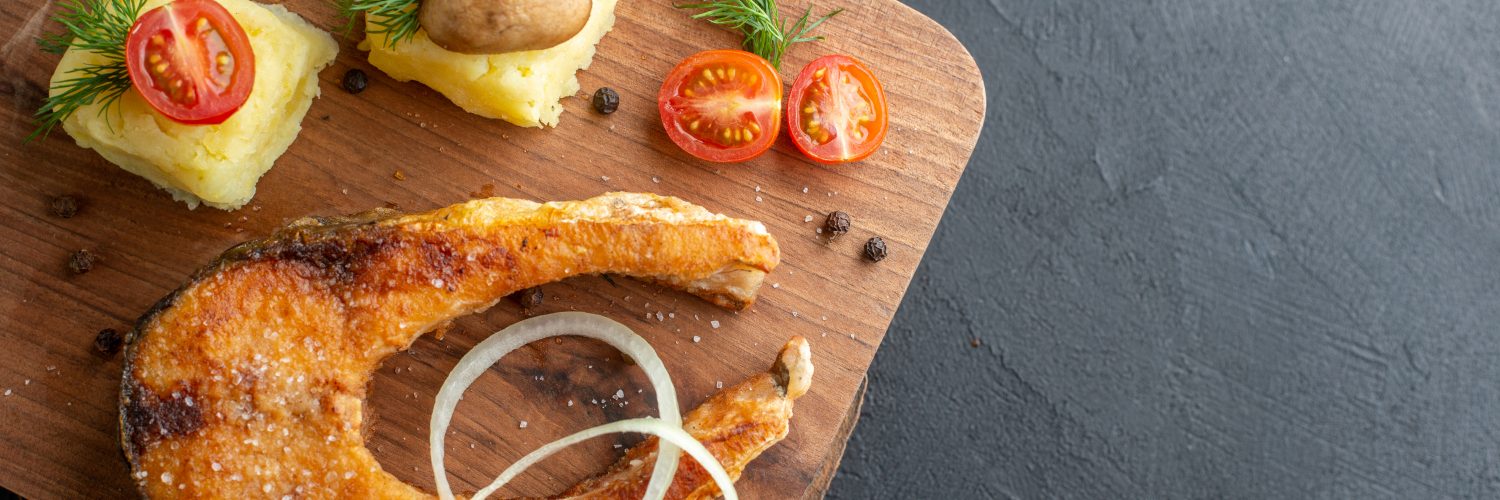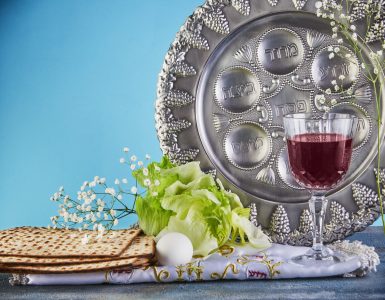A Choleh sheYesh Bo Sakana is permitted to eat forbidden foods (if there are no alternative options) because Pikuach Nefesh sets aside all the Mitzvos in the Torah. This raises two questions: is there any element of sin in doing so[1] and should a Bracha be recited on the food?
HaGaon Rav Asher Weiss Shlit”a addresses this subject (Minchas Asher al haTorah, Bereishis 9); we will review his discussion and consider some related questions.
In Parshas Bereishis, the Torah describes the sin of Adam haRishon who ate from the fruit of the Eitz haDa’as. Adam was not directly persuaded to partake of the fruit by the snake but only did so when Chava gave him the fruit to eat. This is why he later said in his defense – “The woman whom you gave to be with me gave me of the tree and I ate” (Bereishis 3:12). Chava was punished directly for her actions, but Adam was punished only indirectly in that the earth was cursed and he was compelled to work the land by the sweat of his brow from then on.
What precisely was Adam’s sin? The Medrash explains:
R’ Ivi said: She pressed grapes and gave [wine] to him. R’ Simlai says: She came to him with logic. She said to him: “What do you think? That I will die and another Chava will be created for you? There is nothing new under the sun?” (Bereishis Raba 19:5).
In other words, according to R’ Ivi, Chava simply handed Adam a cup of wine and he drank it without inquiring as to its source. However, according to R’ Simlai Chava convinced Adam that no harm would befall him if he would ignore Hashem’s command and eat from the Eitz haDa’as.
According to Rav Ivi, what did Adam do wrong? Was he expected to investigate his wife’s actions and interrogate her to determine the source of the wine? The Yefei Toar comments:
The reason he was punished is that a person is always forewarned – he should have investigated his wife’s actions. This is why the Posuk states, “Because you listened to your wife” – [in other words,] without investigating and interrogating her.
If so, Adam was merely a Shogeg – he sinned unintentionally. Nevertheless, he was deserving of censure because he should have investigated the matter.
This seems like a difficult premise. Is a person obligated to interrogate his assumed trustworthy wife to be sure that she is not feeding him forbidden food? A more detailed explanation is offered by the Or haChaim:
It would seem that Adam’s intent [in excusing himself by saying that Chava gave him the food] was that he didn’t know anything – it was the woman who brought him the prepared food and he ate. [He claimed that] he was not obligated to ask her where the food brought before him came from, because all of the land was filled with delicacies, planted by Hashem. He chose his words precisely – “[The woman] that you gave me” – [to say] that he was not obligated to interrogate and investigate her so as to identify [the source of] what had been brought to him because this woman was given to him by Hashem to assist and help him. Nothing evil comes from Heaven thus he did not need to investigate her for the assumption was that her actions were good. You will find that Chaza”l say, “We do not investigate from the Mizbe’ach upwards” (Kidushin 76a). We see that anything established in a holy place has a presumption of being Kosher. Certainly, [in the case of] a great woman like this one, created by Hashem to assist [Adam], he did not need to investigate what she was giving him… thus Adam’s sin was only a Shogeg. [In fact,] it is possible that he was an Ones for there was no basis to say, “You should have been mindful so that you would not sin.” He did not suspect that she would feed him something forbidden since she was given to him by the Supreme God. This is why you find that Hashem did not curse Adam, but the earth.
According to the Or haChaim’s first approach, Adam was not obligated to interrogate his wife; he was perfectly permitted to rely on her and eat what she gave him. Since she was created directly by Hashem it could be assumed that she was acting in a “Kosher” way. Nevertheless, since he did not investigate, he was considered to have sinned b’Shogeg and was therefore punished. According to the second approach, since he was permitted to rely on his wife [leChatchila], his sin was a complete Ones. This is why he was not punished directly; it was only the earth that was cursed.
This seems to teach an important principle about eating a forbidden substance b’Ones. If a person was able to act with extreme care that would have prevented him from eating it – though he was not obligated to do so – he is worthy of censure on some level.
Then again, it may not be possible to compare Adam, who was inconceivably great, with others. Hashem deals more strictly with the righteous – “k’Chut haSa’ara”[2]. Perhaps Adam’s sin caused a greater impact on the world, thus the earth was cursed as a result. For a “normal” person, not exercising inordinate care to avoid a situation of Ones may not be considered a sin.
The distinction between Shogeg and Ones is relevant to the Halachos of Korbanos. A person is only obligated to bring a Korban Chatas if he sinned b’Shogeg, such as if he forgot that it was Shabbos and desecrated it or forgot that a certain act was a violation of Shabbos. If he sinned b’Ones he is exempt from bringing a Korban. The distinction is based on the principle that a person must determine whether an action is permissible before he performs it, as explained by the Ramban (Sha’ar haGemul, 1):
What was his sin? He wasn’t careful [and] he was not fearful and trembling over the words of Hashem [in order] not to eat anything or do anything until he checked very carefully and the matter is revealed to be permissible and appropriate in accordance with the decrees of Hashem. With this approach, [one can understand] the reason for the sin of Shogeg throughout the Torah. Moreover, anything forbidden sullies the soul and renders it impure, as the Posuk says, “You become contaminated through them”.[3] This is why a [person who sins b’]Shogeg is called a sinner. However, despite this, a Shogeg is not worthy of punishment in Gehinom for his accidental error, but he needs cleansing from the sin and must purify and sanctify himself from it so that he will be fitting for the appropriate station for his good deeds in the World to Come. Therefore, Hashem had mercy on His nation and His pious ones and gave them Korbanos to atone for sins committed b’Shogeg.
In this light, Rav Asher contends that it is reasonable to say that there was a greater charge against Adam haRishon for not carefully checking where the food Chava was serving him came from, even though it was a situation of Ones. This is why he was punished for his sin.
Rav Asher quotes a fascinating Teshuva of the Chasam Sofer (O.C. 202) who was asked about a person incarcerated in a non-Jewish prison who was only served forbidden food and who occasionally partook of it due to weakness. After he was freed, he asked how to repent for his sin since it was difficult for him to fast and he was too poor to give a “Pidyon Nefesh”.[4]
The Chasam Sofer cites Poskim who discuss a person who goes out to save lives on Shabbos. The Shiltei Giborim states (see the Magen Avraham 334:32) that he does not need to repent for doing so. However, he implies that he is permitted to assume some form of repentance. The Chasam Sofer explains that this follows the view (see Y.D. 157) that a person may choose to sacrifice his life for Mitzvos for which he is not obligated to be Moser Nefesh. This view would similarly hold that a person may repent for Issurim he performed in situations of Pikuach Nefesh. However, according to those who hold that it is forbidden to be Moser Nefesh other than for the three cardinal sins (ibid.), Teshuva is inappropriate in a case of sinning due to Pikuach Nefesh.[5]
However, the Chasam Sofer argues that forbidden foods and Arayos (illicit sexual activities) are different since they are “Techilasam b’Ones v’Sofam b’Ratzon” – when violating these Issurim for Pikuach Nefesh, even though the act was initiated as an Ones it is ultimately desirable because of the Hana’a that the person experiences. For this reason, the Chasam Sofer argued that everyone would agree that he should assume a form of repentance. Though there is a Machlokes in the Gemara as to whether a married woman who has relations with another man is forbidden to her husband because it is Techilaso b’Ones v’Sofo b’Ratzon, everyone would agree that she needs to repent (even though she is certainly not subject to punishment).
The Chasam Sofer concludes:
It doesn’t seem right to excessively burden him with fasting or with Tzedaka if he is poor. Rather, he should be informed of his sin so that he may regret it. Hashem who knows and who searches his heart will know if he is truly regretful. He should confess and ask for mercy, for Hashem is a merciful God.
Turning to the question of reciting a Bracha on forbidden foods when one is compelled to eat them due to Pikuach Nefesh, the Shulchan Aruch rules (O.C. 196:1):
If a person eats a forbidden food, even if it is only an Issur d’Rabbanan, he does not make a Zimun over it, nor should he recite a Bracha on it, neither before nor after.
The source of this ruling is the Mishna in Brachos (45a) that states that a Zimun is not conducted when eating Tevel (untithed food). The Gemara attests (47a) that this applies even to Tevel mid’Rabbanan (such as untithed produce that was grown in a non-perforated flowerpot). There is a Machlokes Rishonim as to whether the Mishna’s ruling also applies to Brachos, and not just Zimun. The Rambam rules (Hilchos Brachos 1:19):
Anybody who eats a forbidden food, whether deliberately or accidentally, should not recite a Bracha on it, neither before nor after.
The Ra’avad strongly disagrees:
He has made a great mistake. They did not say that he should not recite a Bracha but that we do not conduct a Zimun over it, meaning that it does not have the importance of a Kevius (a fixed meal) since he ate a forbidden food. It is akin to eating fruits, which are not a Kevius for Zimun. However, why should he not recite a Bracha before and after, given that he derived pleasure?
The Rosh (Brachos 7:2) offers support for the Ra’avad from the statement of the Gemara in Sanhedrin (6b) that one who steals wheat, makes a dough, and sets aside Challa from it, “This is not a Bracha but an act of blasphemy.” This implies that a Bracha should be recited, although it is considered an act of blasphemy.
The Beis Yosef challenges the Rosh’s position from the Yerushalmi in Maseches Challa that states clearly that it is forbidden to recite a Bracha upon stolen Matza. He also cites a different version of the Gemara in Sanhedrin that states, “How can he recite a Bracha? This is not a Bracha but an act of blasphemy”, implying that he should not recite a Bracha. (He also points out that this may also be the correct interpretation of the Rosh’s version of the text.) In addition, he notes that the Tosefta (Demai 2:14) supports the Rambam’s view as do several other Rishonim. Therefore, in Shulchan Aruch he rules like the Rambam that a Bracha should not be recited in these circumstances.
Regarding forbidden foods in cases of Pikuach Nefesh, the Shulchan Aruch rules (ibid. 2) that a Bracha should be recited. He explains in the Beis Yosef that while Rabbeinu Yerucham (in the name of the Ramah) holds that a Bracha should not be recited, the Rambam would in fact agree to the Ra’avad in this case that a Bracha should be recited. The Beis Yosef elaborates in Siman 204, citing the Rosh who rules that a sick person who eats on Yom Kippur should recite a Bracha. This is also the position of the Hagahos Maimonis (Kushta, Brachos 1). Although we cannot adduce proof from the Rosh since he agrees with the Ra’avad (that one should recite a Bracha if he eats a forbidden food), the Beis Yosef maintains that even the Rambam would agree in the case of Pikuach Nefesh since he is eating the forbidden food as a curative measure.
The explanation of the Beis Yosef’s argument is that the Ra’avad’s initial challenge to the Rambam was that a person must surely recite a Bracha if he derives pleasure from food, regardless of whether the food is permissible to him. However, the Rambam held that a Bracha cannot be recited on pleasure of this sort (i.e., “Hana’as Issur”). In the latter case, eating the forbidden food was permissible due to Pikuach Nefesh, so we can say that the Hana’a is permissible and that creates an obligation to recite a Bracha on it.
If so, perhaps the Beis Yosef would make the following distinction: If a person is coerced to eat forbidden food, he should not recite a Bracha, for although he is permitted to eat it due to Pikuach Nefesh, we cannot say that the pleasure he derived is “permissible”. It is similar to the case of the Chasam Sofer of “Techilaso b’Ones v’Sofo b’Ratzon”, which, as explained above, is a sin to some degree. This is unlike the case of a person who needs to eat on Yom Kippur. In that case, the actual pleasure derived from eating – namely the Refua it provides – is permissible, thus even the Rambam would agree with the Ra’avad that a Bracha should be recited. This distinction is found in the Magen Avraham (204:20 & 21), although he does not explain it.
In the aforementioned Teshuva, the Chasam Sofer further explains that while one who is forced to eat does not recite a Bracha, one who eats due to Pikuach Nefesh does recite a Bracha to thank Hashem for providing him with the food that will save his life.
[1] [Editor’s Note: This is a purely theological question as from the practical perspective, Pikuach Nefesh considerations compel the patient to eat the usually-forbidden food.]
[2] Literally, “as a hairsbreadth”, that is, to an exacting standard.
[3] Vayikra 11:43
[4] A sum to Tzedaka to “redeem his soul”
[5] [Editor’s note: According to the former view, since one is permitted to be Moser Nefesh, even though it was entirely permissible to violate an Issur for Pikuach Nefesh, it is understandable that there would be reason to voluntarily do Teshuva. However, if it is forbidden to be Moser Nefesh, there would be no reason to do Teshuva for violating the Issur.]















Add comment